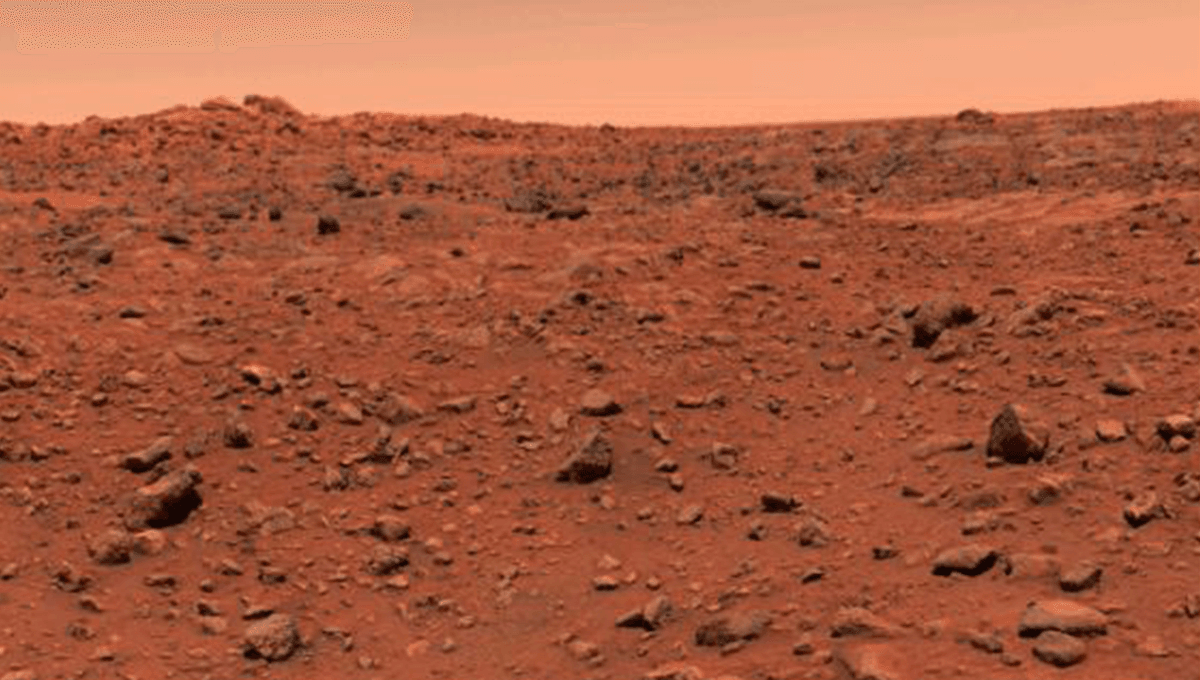
As the search for life on Mars continues – with the Mars Sample Return program set to return samples of the planet in the early 2030s – one scientist has suggested that we may have already found life on the Red Planet, almost 50 years ago. And then, in what would not be an all-time great first impression, we destroyed it.
Long before the Curiosity rover set robotic wheels on Mars, two landers touched down. NASA’s Viking Project, as well as capturing the first ever images from the Martian surface, saw the landers conduct biological tests on the Martian soil, specifically to look for signs of life.
The results were fairly unexpected, and confusing to scientists. Most of the experiments were not promising. In one part of the experiment, traces of chlorinated organics were found, though these were believed at the time to be contaminants brought from Earth.
One part of the experiment saw water containing nutrients and radioactive carbon added to Martian soil. If life were present, the idea was that the microorganisms would consume the nutrients and emit the radioactive carbon as a gas. While the first experiment did find this radioactive gas (control experiment found none) later results were mixed. If microbes were present in the soil, giving them more of the radioactive nutrients and incubating them for longer should produce more radioactive gas. But a second and third injection of the mix did not lead to the production of more gas. The initial positive result was put down to perchlorate, a compound used in fireworks and rocket fuel, which could have metabolized the nutrients.
However, there are other ideas. Dirk Schulze-Makuch, professor for planetary habitability and astrobiology at the Technical University Berlin, suggests that adding water to the experiment was a mistake and may have killed off microbes we were attempting to find.
When you’ve just been drowned by an alien robot, you don’t tend to be all that hungry.
In a piece published in June for BigThink, he cites examples of life on Earth found in the most extreme environments on Earth, living entirely within salt rocks and drawing humidity from the air. Pouring water on these microbes would kill them, perhaps explaining why the further injections of nutrients didn’t result in detection of radioactive gas. When you’ve just been drowned by an alien robot, you don’t tend to be all that hungry.
Schultz-Makuch had previously suggested that Martian life could have hydrogen peroxide in their cells
“This adaptation would have the particular advantages in the Martian environment of providing a low freezing point, a source of oxygen and hygroscopicity,” Schultz-Makuch and co-author Joop M. Houtkooper wrote in a 2007 study.
“If we assume that indigenous Martian life might have adapted to its environment by incorporating hydrogen peroxide into its cells, this could explain the Viking results,” Dirk Schulze-Makuch wrote for BigThink, adding that the gas chromatograph mass-spectrometer heated up samples before analyzing them.
“If the Martian cells contained hydrogen peroxide, that would have killed them. Moreover, it would have caused the hydrogen peroxide to react with any organic molecules in the vicinity to form large amounts of carbon dioxide — which is exactly what the instrument detected.”
Though it’s a huge if, if this was correct it would mean that we found life on Mars nearly 50 years ago, then killed it, like the bad aliens in movies.
Source Link: We May Have Found Life On Mars 50 Years Ago, Then Killed It